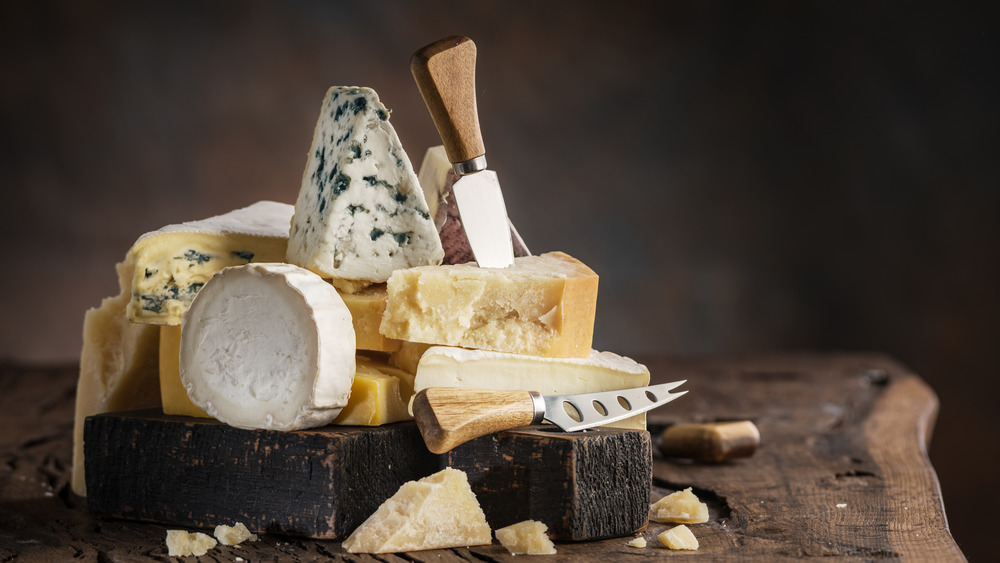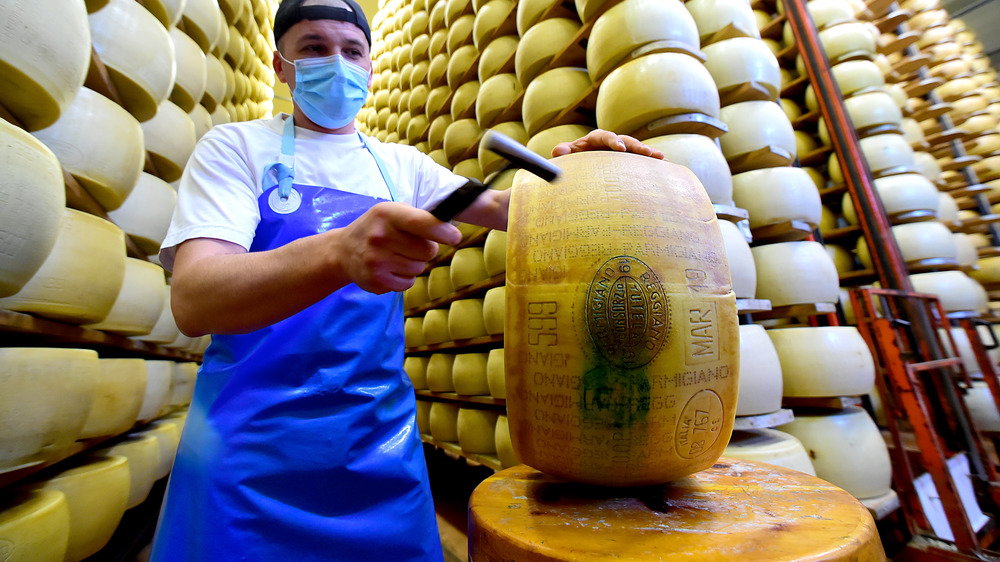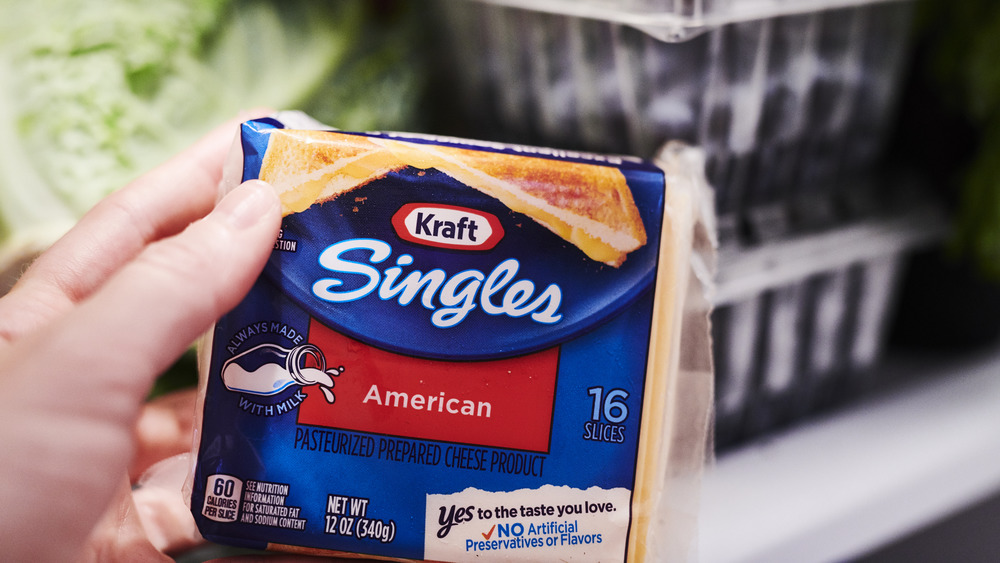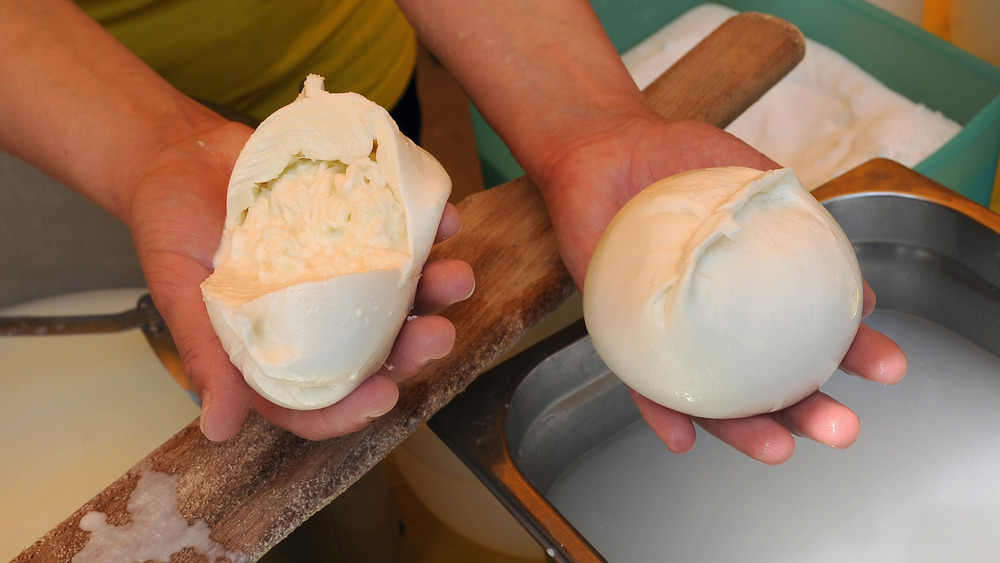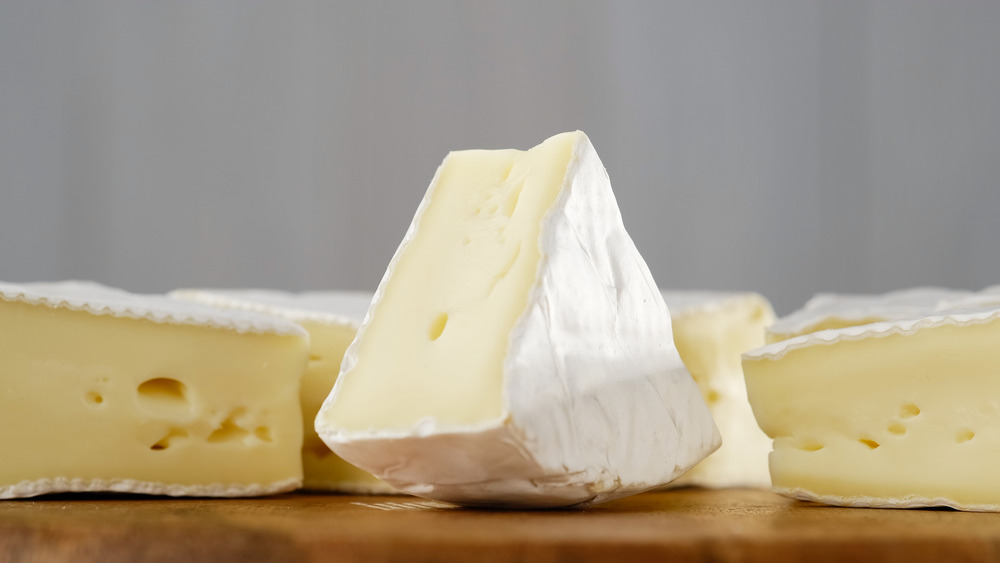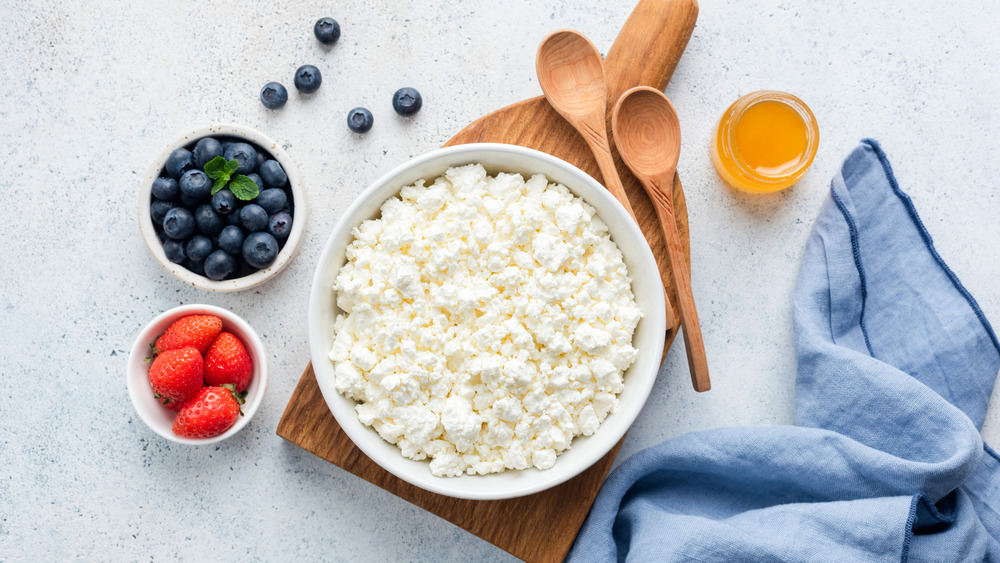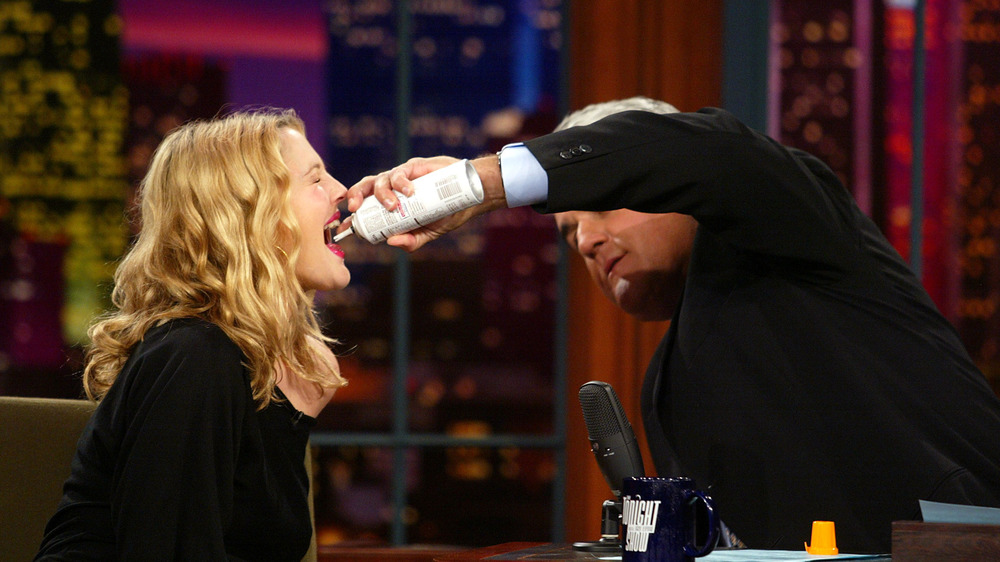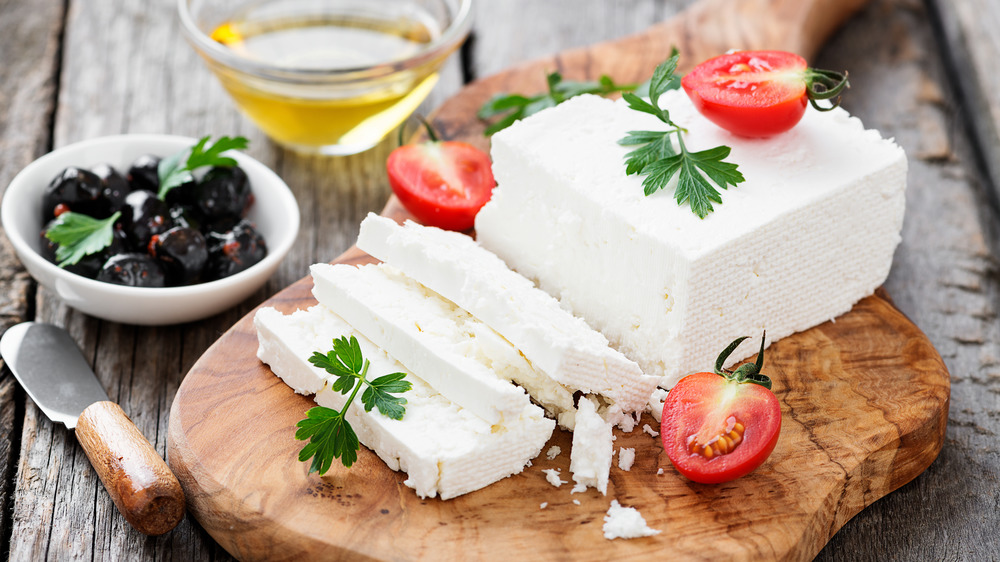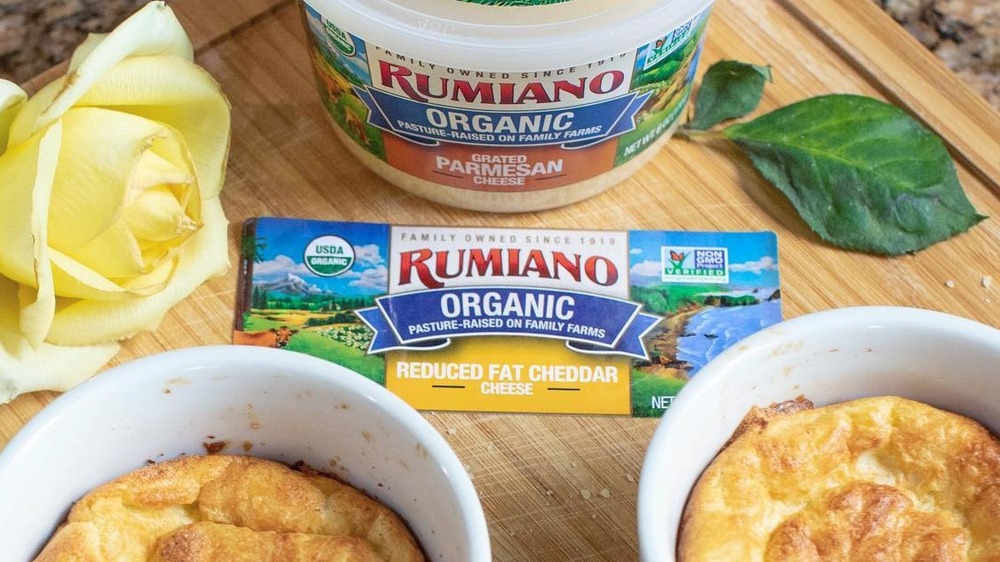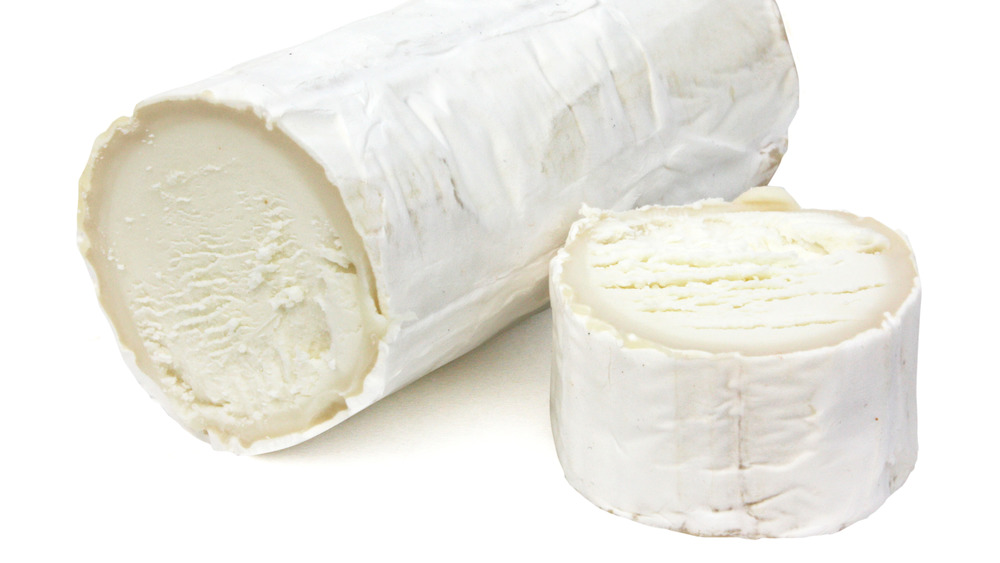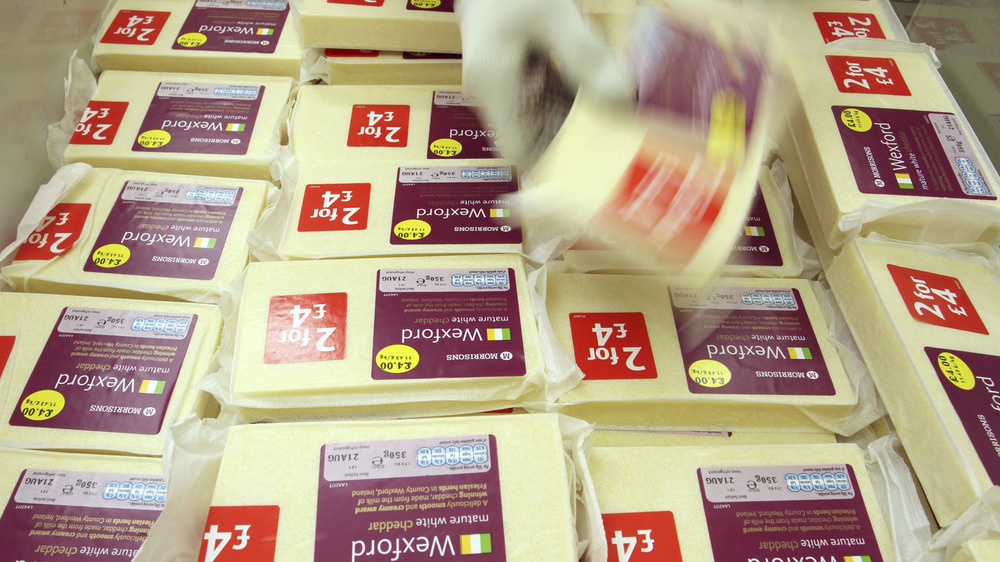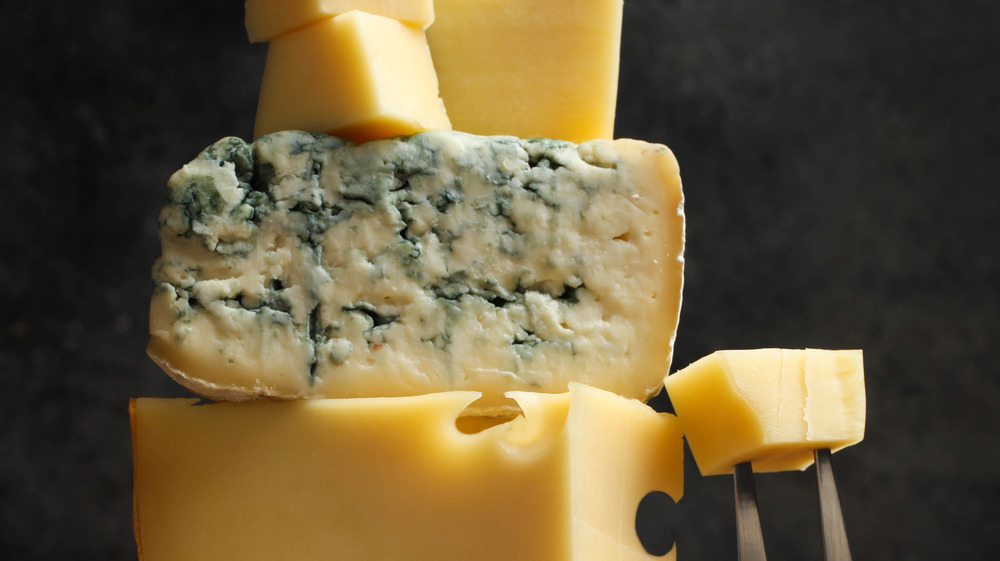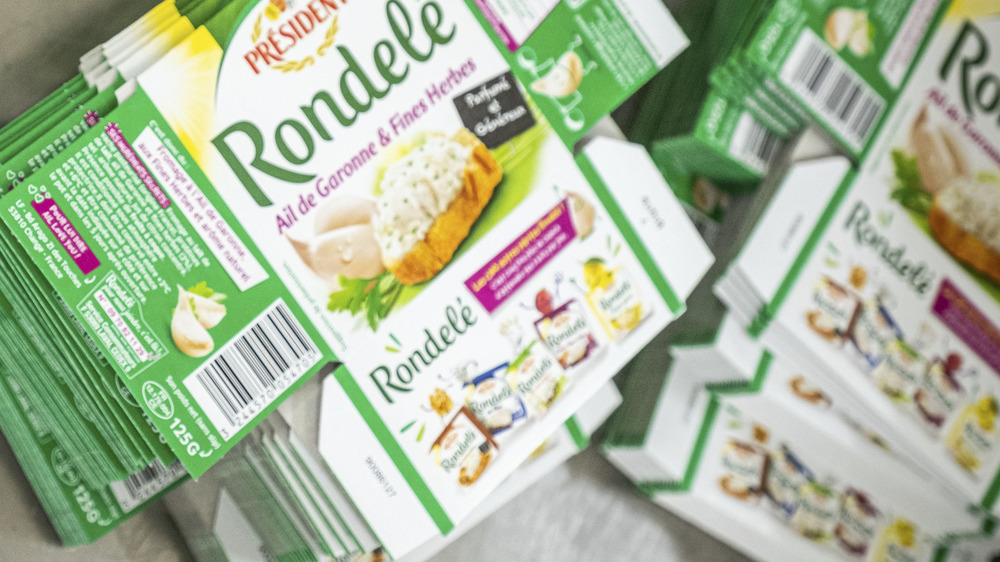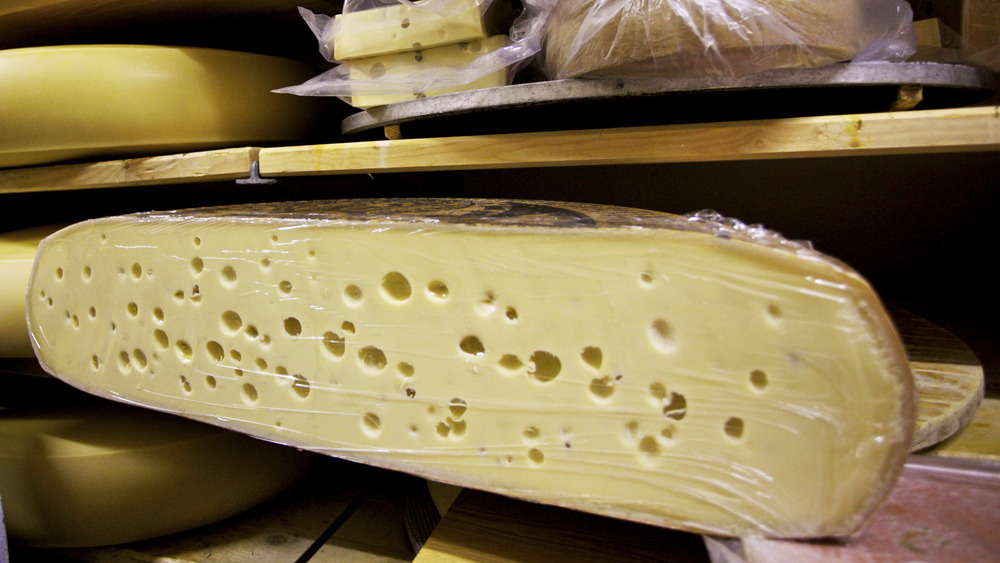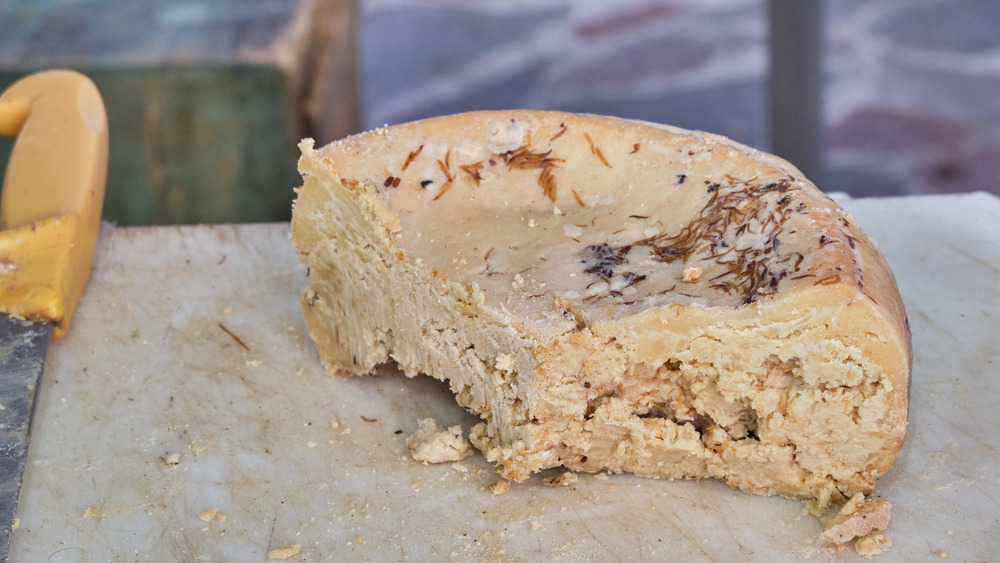7 Cheeses You Should Be Eating And 7 You Shouldn't
Cheese is one of the most delicious foods known to human kind. Without it, there would be no pizza, no Denver omelet, no wine and cheese parties, no Greek Salad, and of course no cheeseburgers, grilled cheese sandwiches, cheese and crackers, or perfect plates of nachos. It's a world that would hardly be worth living in, and one which fortunately we don't have to confront.
And while too often cheese gets a bad rap as being unhealthy, there are actually many varieties of cheese that are nutritious and delicious and can also be part of a healthy diet. We'll discuss a number of those today, but that said, there are also many cheeses that are better off eaten in moderation while many others are better off never touched. Like not even with a 10-foot pole and food safe gloves on. We're featuring a few of those, too, as a PSA.
According to reporting from Forbes, humans have been making cheese for at least 7,500 years. It was a staple food in Ancient Egypt and of the Roman Empire, it is referenced in various passages of the Bible, and it has played a role not just in American diets but even in American politics, giant cheese wheels having served as presidential gifts in the 19th century. Now let's take a closer look at this gift of a foodstuff in iterations you should enjoy often and in forms best foresworn forever.
EAT: Parmesan cheese
Parmesan cheese is a winner in multiple departments. First, of course, it's delicious. Parmesan can accentuate the flavor of pastas, pizzas, salads, soups, and so many other dishes, and along with all the flavor it adds in, parmesan also packs in a number of nutrients. This cheese is rich in calcium, phosphorous, Vitamins A, B12, and B6, and it contains traces of other nutrients like copper and zinc (via Live Strong).
And for all the vitamins and minerals with which parmesan cheese is loaded, it's quite unloaded when it comes to fat content. According to data sourced from Men's Health, a one-ounce serving of parmesan has just eight grams of fat. Compare that to the fat levels found in some of the other cheeses discussed here and you'll see that eight gram number is a fair bragging point of this food named for the Northern Italian Province of Parma.
DON'T EAT: American cheese
It says it right there on the label, folks: "Pasteurized Prepared Cheese Product." Or, in the language of the Food and Drug Administration's "Requirements for Specific Standardized Cheese and Related Products," Sec. 133.169, the official name for this "food" is "Pasteurized Process Cheese."
And if you read on in that gripping section of Code of Federal Regulations Title 21, you'll see this part: "In case it is made of cheddar cheese, washed curd cheese, colby cheese, or granular cheese or any mixture of two or more of these, it may be designated 'Pasteurized process American cheese.'" Not to mention, American cheese is really only required to be 51% actual cheese.
High in saturated fat, loaded with non-cheese ingredients, and, to many palates, objectionable in taste, American cheese is, unlike jazz, Corvettes, and blue jeans, not an American original of which we should be proud.
EAT: Fresh mozzarella
You really haven't lived until you have eaten fresh mozzarella cheese. Like same day, made that morning just outside NYC or Campania-fresh. Fresh mozzarella cheese is a delectable treat that can be enjoyed on pizza, caprese, in pasta dishes, or eaten as-is, no need to gild the lily. And as much as it might seem an indulgent food, minimally processed mozzarella is actually not unhealthy.
According to Healthline, one ounce of mozzarella contains just six grams of fat, while also delivering six grams of protein. Mozzarella is also lower in sodium than most cheeses, with that same one-ounce portion having just 7% of the daily recommended intake based on a 2,000 calorie diet. You will also get 14% if your daily recommended calcium with that ounce of fresh, tender mozzarella. And to top it off, mozzarella cheese may also deliver healthy probiotics like Lactobacillus casei and Lactobacillus fermentum.
DON'T EAT: Camembert
Yes, camembert cheese is delicious and there is a time and place where it's okay to eat a bit, that time being seldom and that place being anywhere, as long as you stick with the seldom thing. This soft, creamy cheese which originated in Camembert, France, is (perhaps not surprisingly) very high in fat, according to the British Heart Foundation. It is about 23% fat, in fact, and what's worse is that 14% of that fat is saturated.
The cheese is also quite high in salt, with as much as 1.5 grams of sodium per 100 grams — or about three ounces — of cheese. All that acknowledged, there is no need to cut this cheese out of your diet completely, but do avoid it other than as a treat. And as truly delicious as deep fried camembert may be, especially served with cranberry sauce, that's a food you'd do best to resist altogether.
EAT: Cottage cheese
Cottage cheese isn't really doing itself any favors with its name, which, according to Cheese.com, "is believed to have originated because the cheese was generally made in cottages from milk left over, after making butter." And indeed you can make cottage cheese yourself rather easily whether you live in a cottage, apartment, or large manor house. Or, you can just buy the stuff at your local grocery.
Any way you get your cottage cheese, it's a cheese you should get plenty of into your diet. According to Healthline, it's low in calories, high in protein, and it's loaded with nutrients, most notably folate, calcium, phosphorus, and Vitamin B12, 59% of your daily recommended value of which can be gained from one cup of cottage cheese. As protein accounts for more than two thirds of the calories in cottage cheese, it's a good food to eat before or after exercise or simply when you want to stay feeling fuller for longer.
DON'T EAT: Spray cheese
Drew Barrymore's face in this Tonight Show memory says it all. And there's a reason Wired called spray cheese "one of the world's most unnatural foods," while Everyday Health says that "it's [a] heavily processed cheese that isn't really, well, cheese." Look, just as a simple, undeniable fact you know that cheese delivered from a pressurized can via depressed nozzle has no business entering your body. This cheese is just all wrong in principle. And it's all wrong in practice, too.
Wired broke down the ingredients you'll find in a can of spray cheese, like Kraft Easy Cheese Cheddar Pasteurized Cheese Snack, and identified, among other things, canola oil to maintain its liquid texture, sodium phosphate, whey, and about twice as much salt as you get in other cheeses. This affront both to human health and human dignity belongs in the history books, not grocery aisles, and it certainly does not belong anywhere near anything you are planning to ingest or, worse still, feed to your growing children.
EAT: Feta cheese
Feta cheese has been having quite the moment recently thanks to the so-called TikTok Pasta recipe that puts a brick of this beloved cheese at the center of a tomato and noodle dish. Beyond the recent viral hype that the Charlotte Observer reported had grocery shelves in some areas devoid of the cheese, feta is indeed a tasty cheese that should be a regular part of your diet.
Traditionally made from sheep or goat milk, it's low in lactose and relatively low in calories, too, according to WebMD. Feta is rich in calcium thus good for bone health, it has plentiful probiotics, and it delivers immune supporters like selenium and zinc, and phosphorous, which helps sustain bones and teeth. Also, feta is tangy and delicious, serving as the grace note of many a salad, omelet, wrap, and quite tasty snacked on by itself as well. It can be cubed or crumbled, but unlike most cheeses, it can't really be melted the way most cheeses can.
DON'T EAT: Reduced fat cheese
If you're concerned about cutting fat in the name of your health, then you need to consider cutting out cheese altogether (or opting for a naturally lower fat cheese) instead of going for a reduced fat cheese, as what is added back into the cheese to replace the fat removed could be worse for your health than that natural fat. "Any food that eliminates fat or sugar should be on your radar," according to Insider, which also reports that these low-fat alternatives can contain harmful ingredients."
Also, according to the American Journal of Clinical Nutrition, if you opt for reduced fat cheese, you may miss out on many heart healthy benefits you get with full fat cheese, like HDL cholesterol, or high-density lipoprotein, which is commonly referred to as "the good cholesterol" and is necessary for your body, according to the Centers for Disease Control and Prevention (CDC).
EAT: Goat cheese
Contrary to common misconception, goat cheese is not lactose free, but it does tend to be much lower in lactose than dairy milk and can usually be tolerated just fine by people who have to avoid dairy products for health reasons, according to Prevention. And all in all, goat's milk (and goat cheese) is a match for cow's milk in other nutritional capacities.
Moderate in fat and a decent source of protein, goat cheese is also relatively low in calories, with about 100 calories per one-ounce serving, according to Healthline. It is a decent source of Vitamin A and Vitamin B2 (also known as riboflavin) and has calcium, phosphorous, iron, and copper. And goat cheese can be substituted for cow cheese in many recipes, from lasagna to grilled cheese sandwiches to an appetizer platter, so even if you don't do so well with dairy foods, you can still be a cheese lover.
DON'T EAT: Cheddar
This is a hard one, we know. Cheddar cheese is absolutely delicious. For many people, it's their desert island cheese, the one they'd pick if they could only ever have one type of cheese again. But it's a cheese you should really cut back on, especially if you regularly eat omelets, sandwiches, burgers, or other foods where cheese plays a large role. Why? Because cheddar is one fatty, salty cheese.
For some comparison, according to Nutritionix, feta cheese has 21.3 grams of fat per 100 grams (about 3 ounces) of cheese. Mozzarella, on the other hand, has 22.3 fat grams in the same amount of cheese, while Brie has 27.7 grams of fat in about 3 ounces. And cheddar? Well, it contains 33.3 grams of fat per 100 grams of cheese. That makes it more than a third heavier in fat than some of the other cheeses on our list. And as noted, a reduced fat option isn't a good solution, so it's time to start treating this most beloved everyday cheese as a sometimes treat instead.
EAT: Blue cheese
While understandably a turn-off to many, with blue cheese getting its color (and taste and odor) courtesy of mold, blue cheese is a relatively healthy option that need not be avoided based on health concerns. According to Healthline, blue cheese is higher in calcium than most other cheeses, having 33% of your recommended daily intake in just once ounce, and it's relatively low in calories, too, with just 100 calories per that one ounce serving.
And despite what you may expect given the big, bold taste of most blue cheeses, it's not that high in salt, being nearly matched with feta and parmesan given its 380 milligrams of sodium in each single ounce portion. (If you're really watching your salt, though, consider Swiss cheese.)
Note that blue cheese salad dressing, on the other hand, is hardly a healthy choice, as it is usually loaded with fatty ingredients and high in calories (via My Fitness Pal).
DON'T EAT: Sweetened cream cheese
Watch out for sweetened cream cheeses, because according to The Daily Meal, they many contain ingredients like aspartame that can cause a raft of gut issues. And frankly, sweetened cream cheese is only making a larger issue out of a food already best avoided as much as possible. While delicious and occasionally almost necessary when bagels and lox are present, cream cheese is really not a healthy food, even without sweetening additives.
According to Healthline, cream cheese is very low in protein and relatively high in fat, with only about two grams of protein per ounce and, to meet requirements set by the United States government, must be at least 33% fat. If you can't resist the stuff, try whipped cream cheese, as whipped cream cheese tends to have less fat and calories than it's non-whipped counterpart Healthline reports. Also, don't forget about the glory of a good old buttered bagel. (Of course, you need to moderate butter intake, too...)
EAT: Swiss Cheese
Swiss cheese is very low in sodium, as in it has 52 milligrams per serving, according to WebMD. Remember that blue cheese had 380 milligrams of sodium in an ounce of the stuff, so if you do the math here, you'll find Swiss more than seven times lower in salt. It's also pretty low in fat, with eight grams per serving, and decent on protein, with seven grams of that all-important stuff in the same amount. Also there's the fact that Swiss cheese is delectable on burgers or sandwiches, great in fondue, and a delight on its own as well.
And by the way, in case you're wondering why Swiss cheese has holes, according to Study.com, it's because P. shermanii, the bacterium that gives Swiss cheese its distinctive flavor, emits carbon dioxide as a byproduct as it's doing its thing to the milk used to make the cheese.
REALLY DON'T: Casu Marzu
With apologies to the cultural and culinary heritage of Sardinia, Italy, home place of this foodstuff, there are so many red flags when it comes to Casu Marzu cheese that you'll think you're at a Lunar New Year celebration. First, the name literally means "rotten cheese," according to Cheese.com. The cheese contains live maggots (cheese fly larvae, that is) that render the stuff soft and almost fluid-like and amazingly pungent. And if the maggots die, they can render the cheese unsafe for consumption, to boot.
On the island of Sardinia, Casu Marzu is a traditional dish at celebrations like weddings and holidays; in America, however the cheese is, in the words of Smithsonian Magazine, "completely forbidden here." If you want to try the fly larvae cheese yourself, you'll need to book a trip across the Atlantic but, before you get your tickets, maybe first consider reexamining your life choices.
